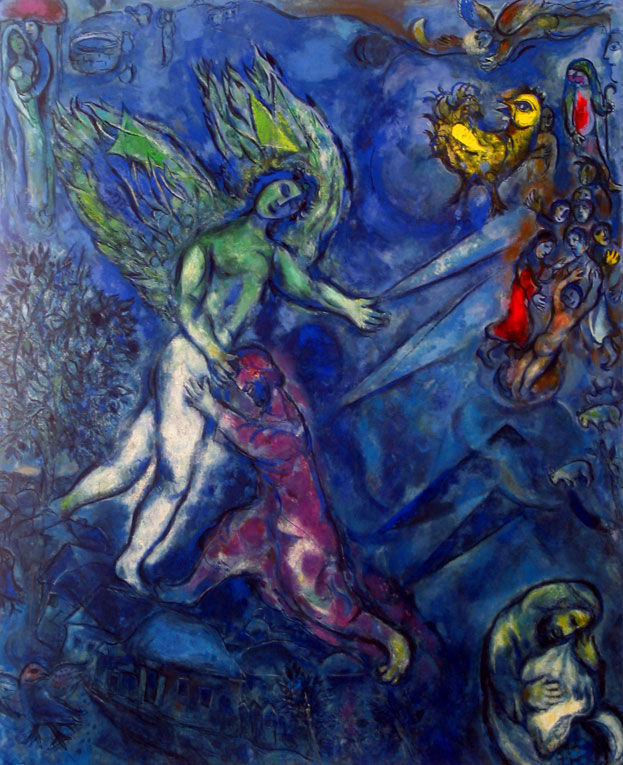When we discharged him to his mother, I looked at Jack and told him, "I am so sorry your teacher didn't listen to you, because the question you asked is a great one. Keep asking questions, Jack, that's the way to really learn!" His face lit up, and then he was out the door, leaving me with that great existential question many have wrestled with: "Why are we going through all this, since in the end we are all going to die anyway?"
Jacob, in tomorrow's Old Testament lesson, has existential questions as well. Having stolen his father's blessing from his brother by way of swindle and deceit, he had barely escaped his brother's fury. With Esau's threat in his ears, "I'll kill you", he had run for his life. Now, after having lived far away for a long time, he is on his way back home. Even though he has sent messengers with gifts to prepare for the reconciliation, Esau has sent word that he is coming to meet him with hundreds of men. Jacob is full of fear and trepidation; all he can think of is Esau.
Marc Chagall: Jacob's Struggle with the Angel
When he is alone that night before the meeting, he finds himself in a meeting he isn't prepared for: "A man wrestled with him until daybreak". In the middle of the night, two forms overlap, that of Jacob and that of the dreaded stranger. They wrestle throughout the night until daybreak, at which point the stranger cripples Jacob with a blow to his hip that disables him with a limp for the rest of his life. By then Jacob knows what has happened: "I saw God face to face, and yet my life was spared" (Genesis 32:30) -- but the man that went into the struggle is gone; Jacob has become Israel: the same man, but with a completely different outlook.
Our culture teaches us to abhor and fear weakness, failure, struggle, and doubt. The Jacob story jerks us back to reality. Like all of us at one point or another, Jacob deals with change, isolation, darkness, fear, powerlessness, vulnerability, exhaustion, and scarring, in short, the "human condition". But as God doesn't leave Jacob there, we won't have to stay there either. His wrestling with God changes him profoundly; the physical limp is just an outward sign of the fact that he has truly looked inside himself; he has confronted in himself the things that have wounded him. In a moment of clarity, Jacob forgets all about Esau; he realizes that all that ever mattered is that he is not alone. The confrontation puts him back in touch with himself. As he wrestles, it becomes crystal clear to him that he is known and owned by the God of the Universe. In his struggle, he finds faith and courage that he didn't think he had -- to the point that he is blessed with a new name: Jacob (meaning "the swindler") becomes Israel (meaning "God Perseveres").
If you have existential questions, like little Jack in the ER, join the club! Struggling and wrestling is good for you. As the German poet Rilke put it to one of his students: "Have patience with everything unresolved in your heart and try to love the questions themselves as if they were locked rooms or books written in a very foreign language. Live the questions now. You will gradually, without even noticing it, live your way into the answer." Keep wrestling, keep asking the hard questions, and you shall live indeed!
Genesis 32:22-31

No comments:
Post a Comment